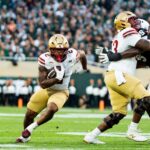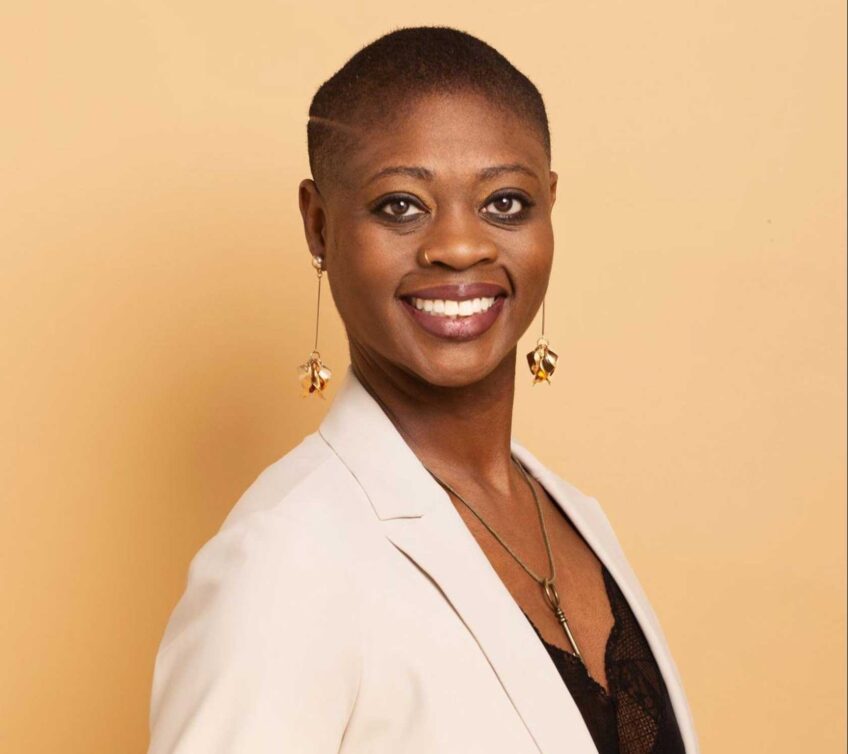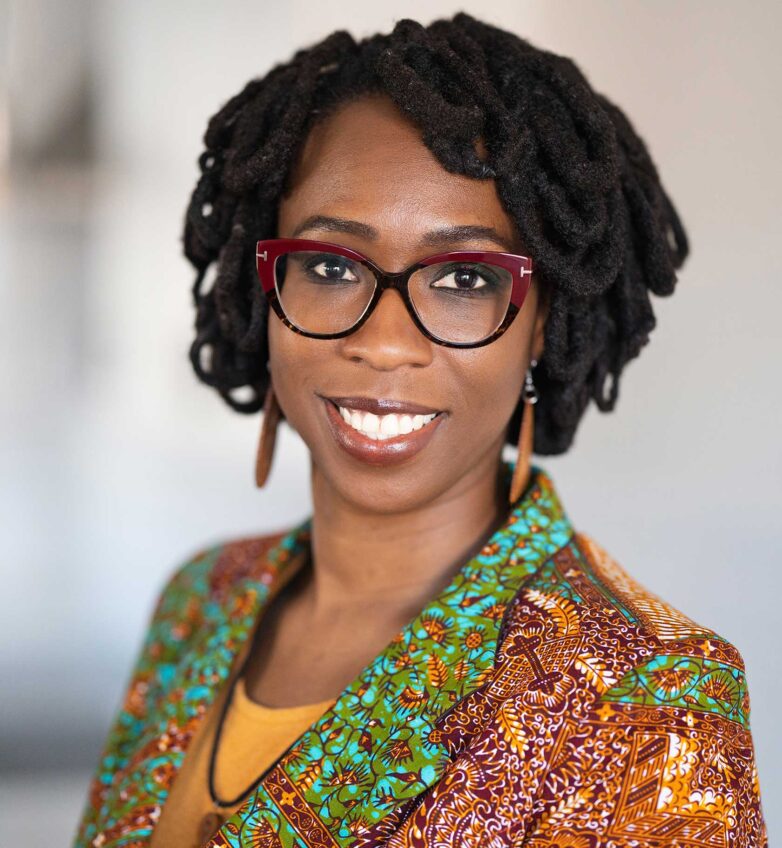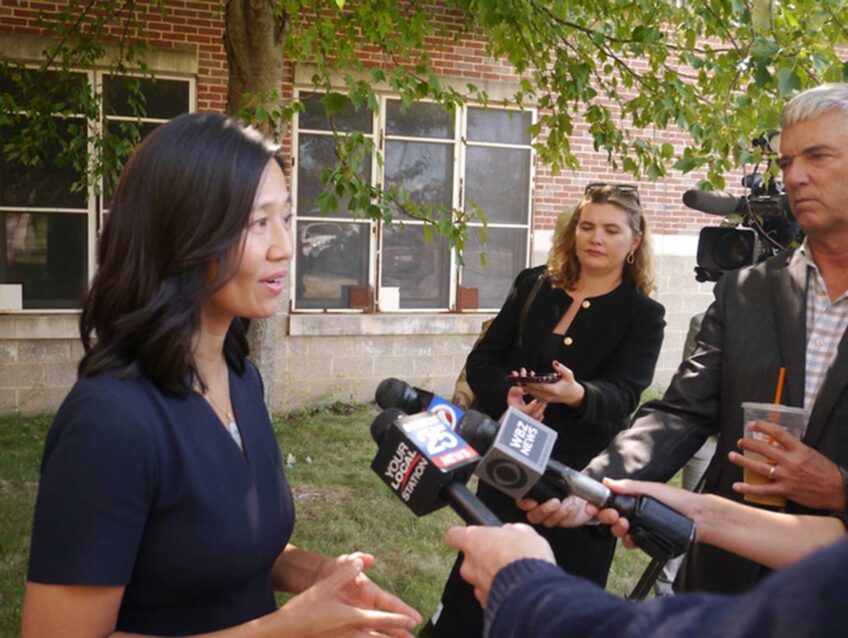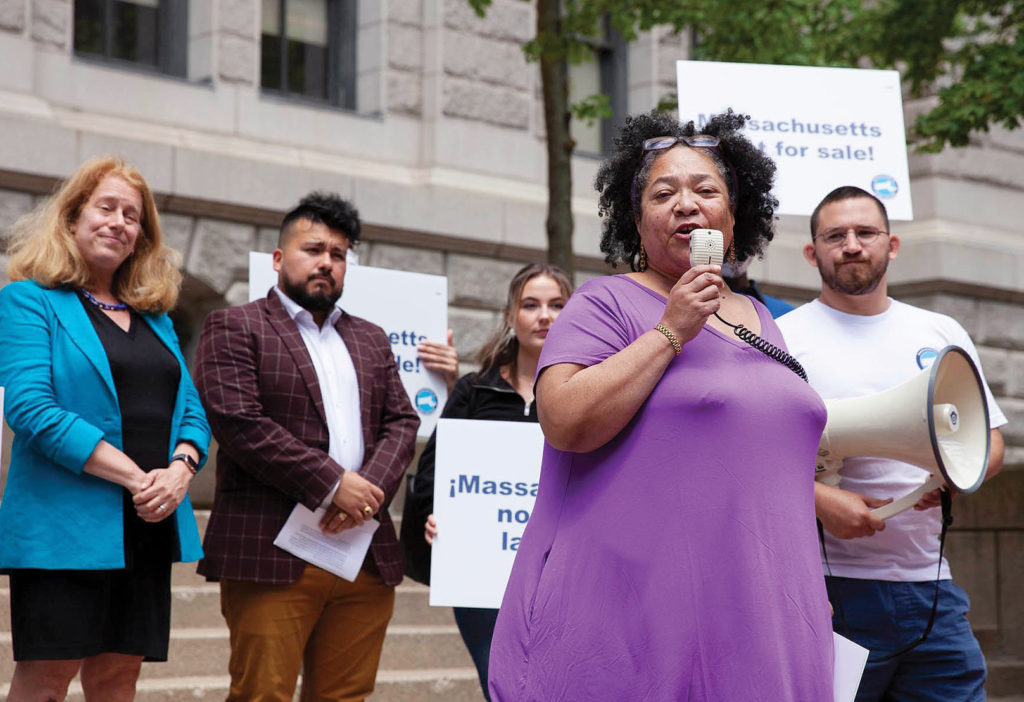
Advocates opposed to the push by tech companies like Uber and Lyft to continue classifying drivers as independent contractors came together last week to celebrate the Massachusetts Supreme Judicial Court’s decision to throw out a ballot measure that would allow voters to decide on the issue.
The dozen or so advocates who gathered June 23 on the steps of the courthouse in Pemberton Square represented the Massachusetts is Not for Sale coalition — a group that has fought against the tech giants’ efforts to codify their business model.
“Our work isn’t done. We’ve won the battle, but now it’s time to win the war,” said Jonathon Paz, organizing director for Mass Not for Sale.
Earlier this month, the SJC threw out the proposed ballot question on the grounds that it contained “at least two substantively distinct policy decisions, one of which is buried in obscure language at the end of the petitions.” While the question was initially approved by Massachusetts Attorney General Maura Healey, Massachusetts state law demands that ballot questions “must contain only related or mutually dependent subjects.”
One part of the question posed by tech companies pertained to employment status, classifying drivers who work for the rideshare companies as contractors, not employees. A second part would have limited the companies’ liability in the case of an accident or other third-party injury instances — therefore making the question ineligible to be voted on.
And while the decision may seem like it was decided purely on a technicality, and the companies can come back with a reworded question, advocates are taking this as a major victory.
“We’re going to hold them accountable to respecting, protecting and paying drivers,” Paz said Thursday. “And we’re going to essentially demand that these corporations respond to the safety crisis that they have created.”
He and the other members of the coalition highlight the risk drivers would bear for accident liability above maximum coverage provided by companies, as well as the fact that companies also deny them other employee benefits like insurance and unemployment.
They’ve been backed by lawmakers such as U.S. Sens. Elizabeth Warren and Edward Markey and U.S. Reps Ayanna Pressley, Seth Moulton and Stephen Lynch, who in May sent a letter to DoorDash CEO Tony Xu calling on Big Tech corporations to respond to safety concerns and for executives creating the model for workers to exercise greater transparency.
The Boston City Council had already passed a resolution urging state lawmakers to oppose the measure.
The issue, which was set to go before voters this fall, was primed to be a heated battle, as tech companies spent millions on TV and internet ads claiming that making drivers employees of companies like Uber and Lyft would eliminate the flexibility that draws drivers to the platforms. The ads, promoted by groups such as “Flexibility and Benefits for Massachusetts Drivers,” had been airing for months before the court decision.
“They decided to pour their money into an attempt to buy a law that would allow them to avoid all labor protections, all employment, all wage protections, anti-discrimination protections,” labor attorney Shannon Liss-Riordan said. “And I’m so proud that this coalition came together to fight back against that. I’m very proud to be a co-founding member of the board of this coalition that brought together not just labor activists, but consumer rights advocates, as well as civil rights advocates, to say that Massachusetts is not for sale.”
Coalition members say they will continue to fight for drivers’ rights until they’re written into state law. As for the tech companies, their next chance for getting a question in front of state voters will be in 2024.
In the meantime, Paz said, “We’re gonna create the most ambitious drivers’ union as a model for the rest of the state to follow.”
He added, “So I hope everyone here continues in our path as we continue to build a movement for not only the rights of gig workers, but everyone across the commonwealth, as we enshrine what it means to have better wages, benefits and protections.”
Rideshare driver Zakiya Alake, who spoke at the June 23 rally, also noted the need to continue working in the wake of the court’s decision.
“We have a lot of work to do to make sure that we sing together as a choir, that labor and everybody else makes room for everybody that needs to come into this big tent and build a solid foundation against the vulture capitalists that we see today as Lyft and Uber,” she said.

